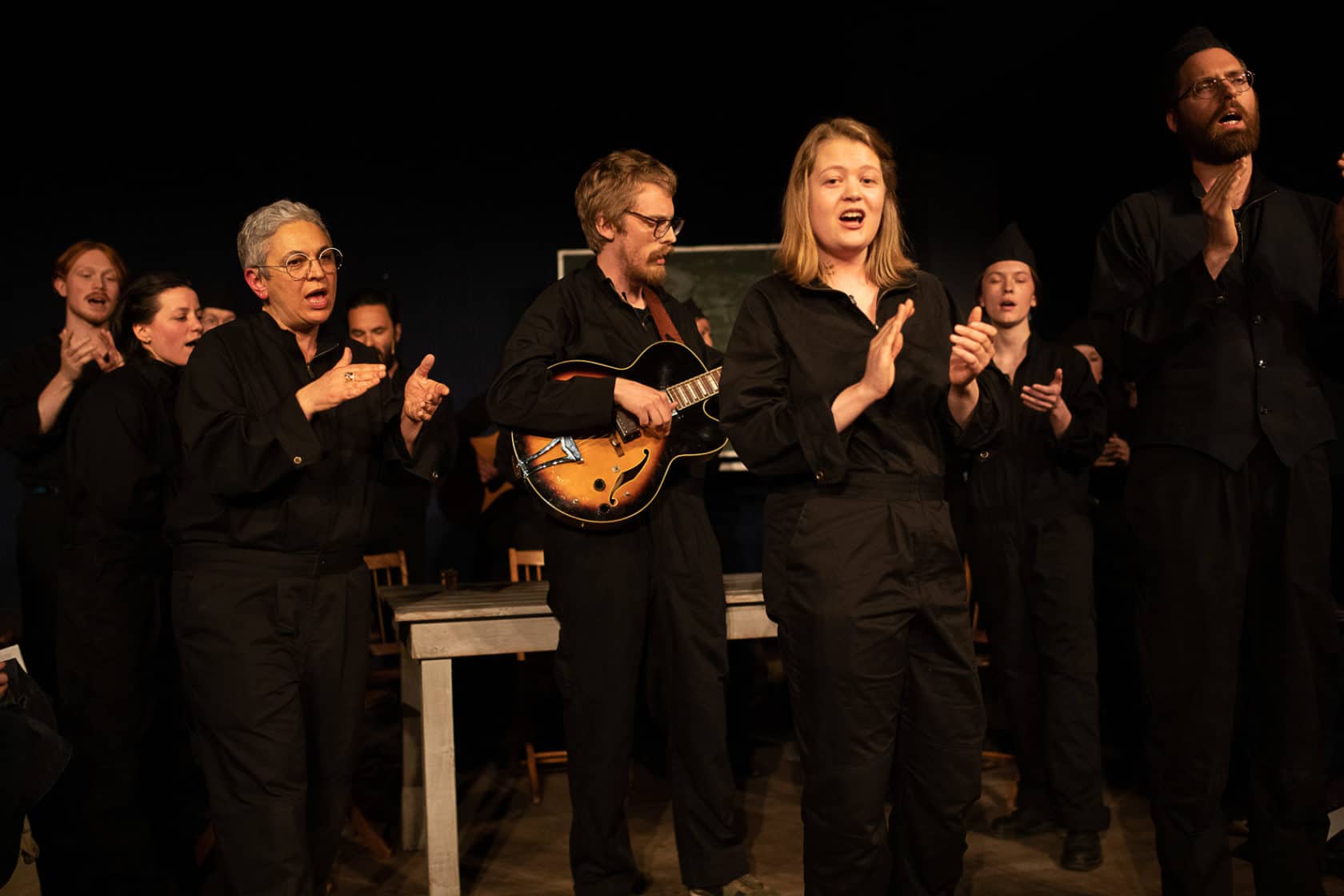National Episodes: The Radical Flu: A Radio Play. Now available as podcast!
Information
In this second of Rose Hammer's National Episodes: The Radical Flu: A Radio Radio Play, time is turned back to the year 1918. Norway is experiencing the worldwide epidemic called the Spanish flu (H1N1 virus), the last shot fired in World War I is imminently near, and Russia is well on her way into her first year of the revolution. In the radio play The Radical Flu, we follow a group of artists, intellectuals, feminists, clergy and other authority figures during the first year of the plague in various places in Oslo (then Kristiania).
The Radical Flu is now available as a podcast, where you get your podcasts (Apple, Spotify, Google Play etc.).
The Radio Play was played every Thursday from 1-2 pm in the period October-December 2020. Click here to read more over at RadiOrakel.
To see an audiovisual trailer for the radio play, click on the player below:
Click here to read more about the collective artist personae Rose Hammer's background.
The Radical Flu: A Radio Play
The collective artist persona Rose Hammer started to work on the episode The Radical Flu: A Radio Play in September 2019. The episode is based on the novel "The Plague" (1947) by Albert Camus and the 1965 edition of the opera with the same name by Roberto Gerhard. In the radio play's eight episodes, we meet well-known artists such as Gustav Vigeland, Edvard Munch and his lesser-known sister Inger. Together with Munch and Vigeland, we become acquainted with historical feminists, politicians, clergy and other celebrities in Kristiania (Oslo) during the flu epidemic in 1918.
The radical flu: A Radio Play starts as the epidemic sweeps over Norway and the rest of the world. Fascism is on the rise, along with ideological metaphors such as ideas of a sick body as symptoms of a sick society. Ideas that are set against notions of a pure, mythical ideal under threat. As the plague spreads, the often-authoritarian ideologies of the time are spread. These are themes that Rose Hammer explores in The Radical Flu. Rose Hammer describes the starting point of this year’s episode like this:
“For this production, Rose Hammer carefully considers relatively unknown stories at the origin of mainstream notions of identity, nationality, and history, in order to construct a counter narrative, and to present it following the rules of Brechtian agitprop: with explicit, clearly formulated political positions, non-hierarchical dynamics, and a reductio ad absurdum* of notions such as professionalism, virtuosity, and entertainment. The presentations are always site- and context specific.”
The unexpected parallel to the current situation with the coronavirus pandemic, gave Rose Hammer new ideas during the production of the radio play. Suddenly, the project became an urgent real-time play, where both the unpredictable and the real could emerge.
The Radical Flu has on its own website, www.theradicalflu.org, highlighted the historical coincidences between the current situation and Norway in 1918, in a passage from "Epidemic" (1987) by the Danish film director Lars Von Trier:
A coincidence due to fate/ can be so sinister and fantastic in character/ that one is tempted to draw apparently logical, / but actually unfounded, conclusions./ During the course of 5 days/ The “Epidemic” manuscript was created and written down/ in and around this apartment./ That an actual epidemic/ was approaching during those 5 days,/ and that its awful outbreak and script completion coincided,/ is one of those inexplicable coincidences.
May 2019 Rose Hammers First National Episode: Grini and the Futures of Norway
National Episodes: Grini and the Futures of Norway was the first of a series of short theatrical pieces inspired by pivotal moments in the history of Norway, created by the collective artist persona Rose Hammer. The first episode was based on the historical meetings that took place at Grini prison camp during World War II. It is rumoured to be a historical fact that networks of political prisoners during WWII shaped what Norway has become today.
The first episode of the series premiered on the 26th of May 2019.

The location of the play was not a coincidence, because Rose Hammer’s plays, as cited above, are both historically context-and site-specific. The play was therefore performed at the reception rooms Påfuglen Perlen (Peacock Pearl) located in what was once the old banqueting hall of the “Construction Workers’ House” at Hammersborggata 19/21 in Oslo. The building opened in 1938 and now functions as commercial premises.
During the Second World War, it became the headquarters of the Norwegian State Police (“Stapo”).
The Stapo operated under the German Sicherheitspolizei (security police), also in charge of the Gestapo and Kripo (criminal police). During the Occupation, the Stapo’s headquarters in the Construction Workers’ House was the target of a spectacular attack by the Norwegian Communist sabotage organization the Osvald Group, which had strong ties with the Soviet intelligence organization NKVD.
Click here to read more about the first episode, and to watch edited footage of the performance from May 26th 2019.